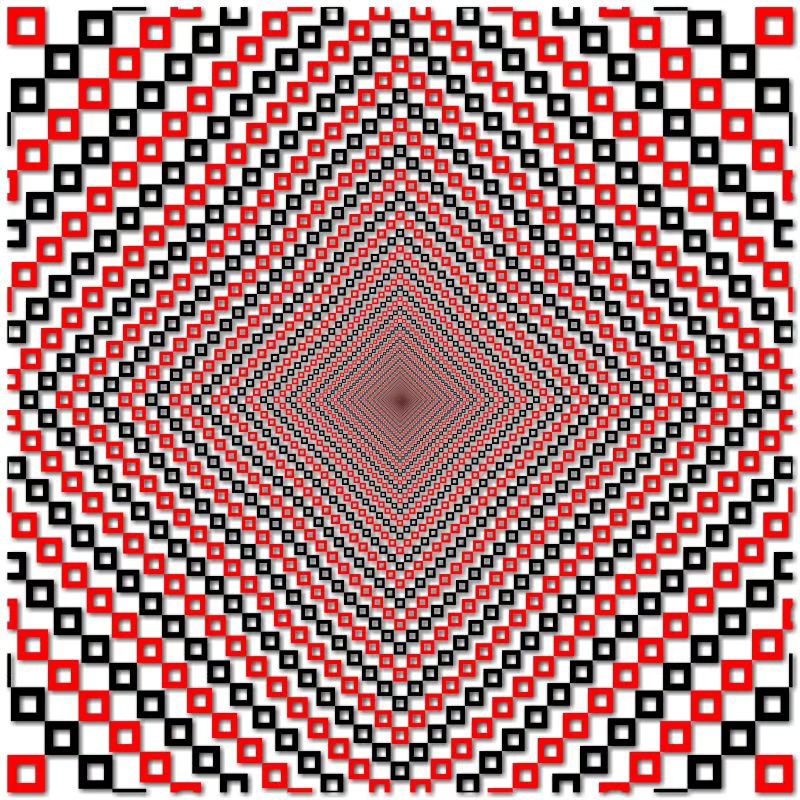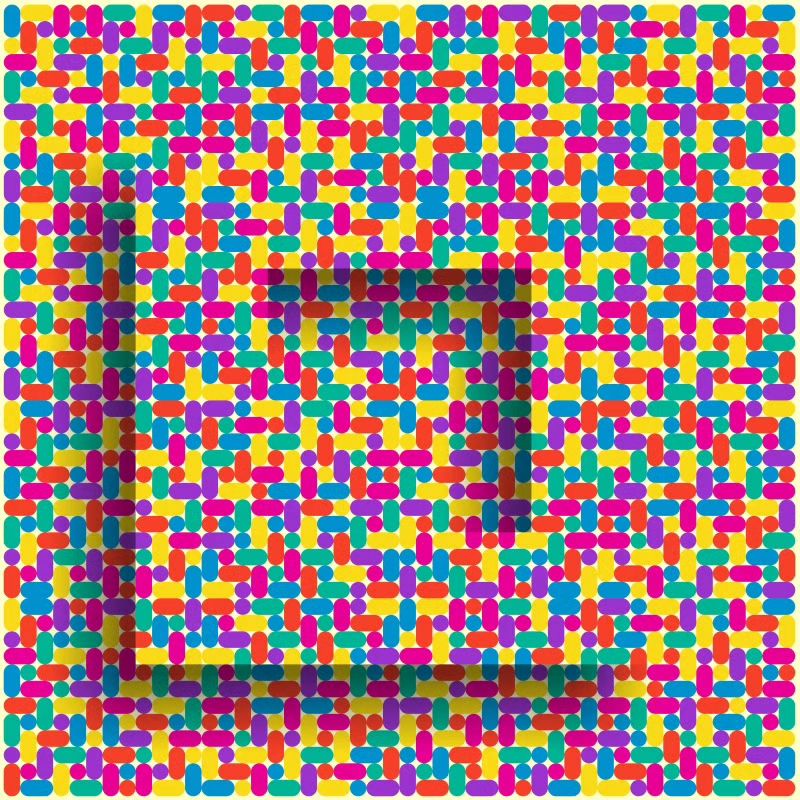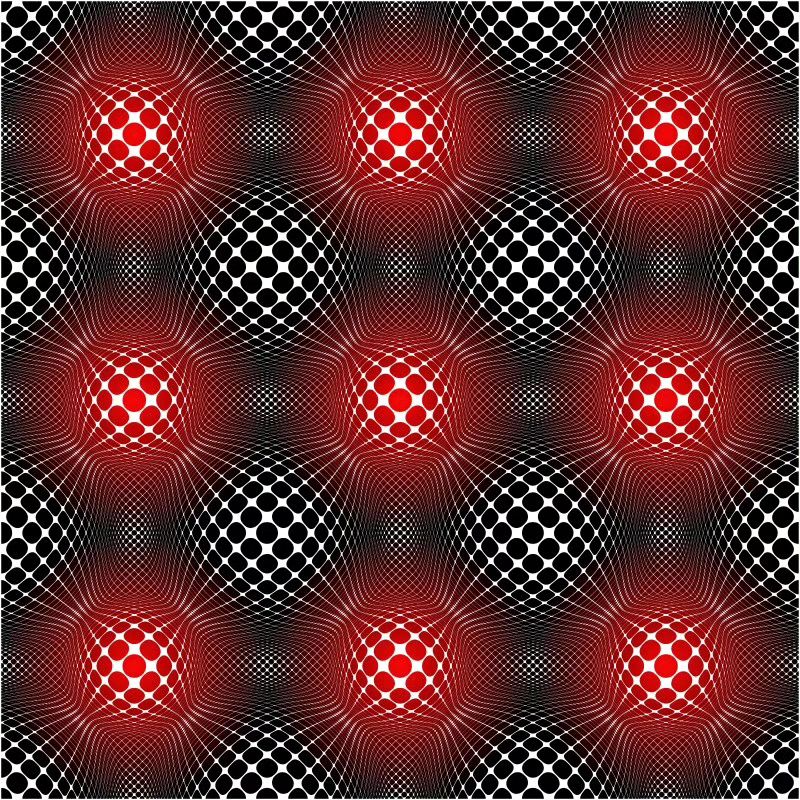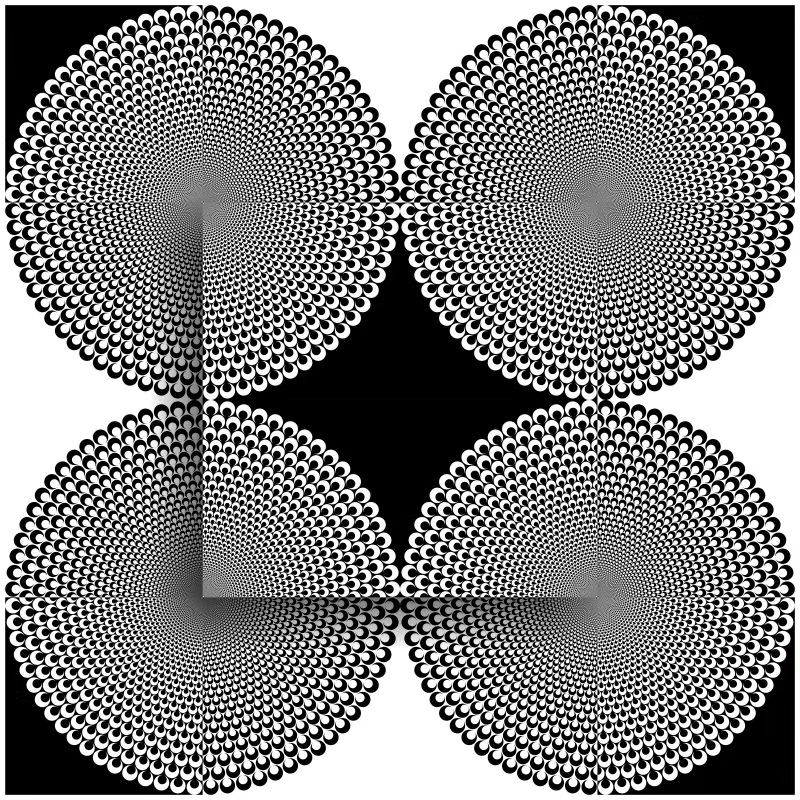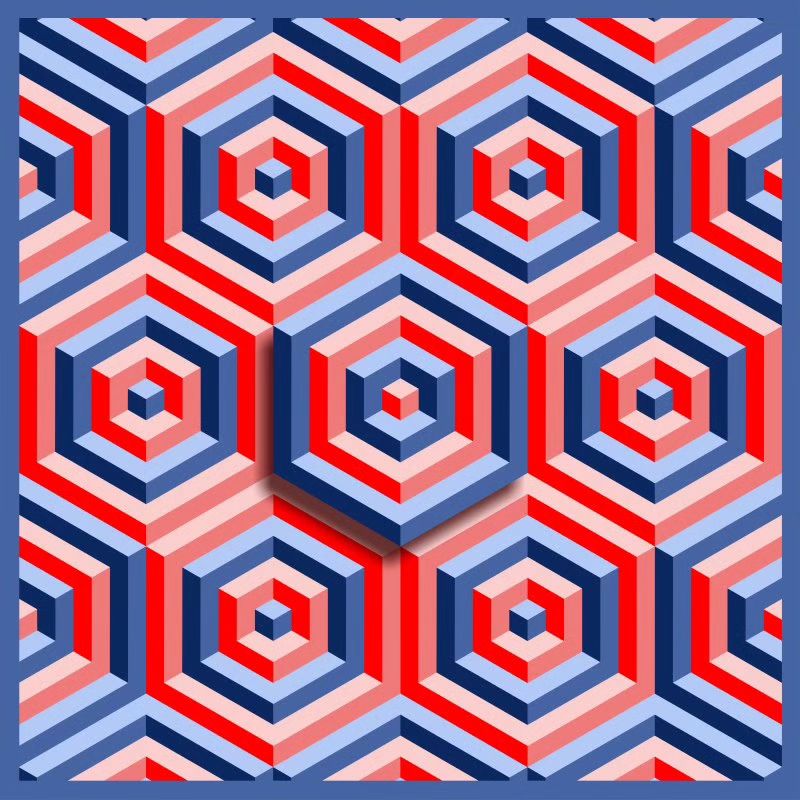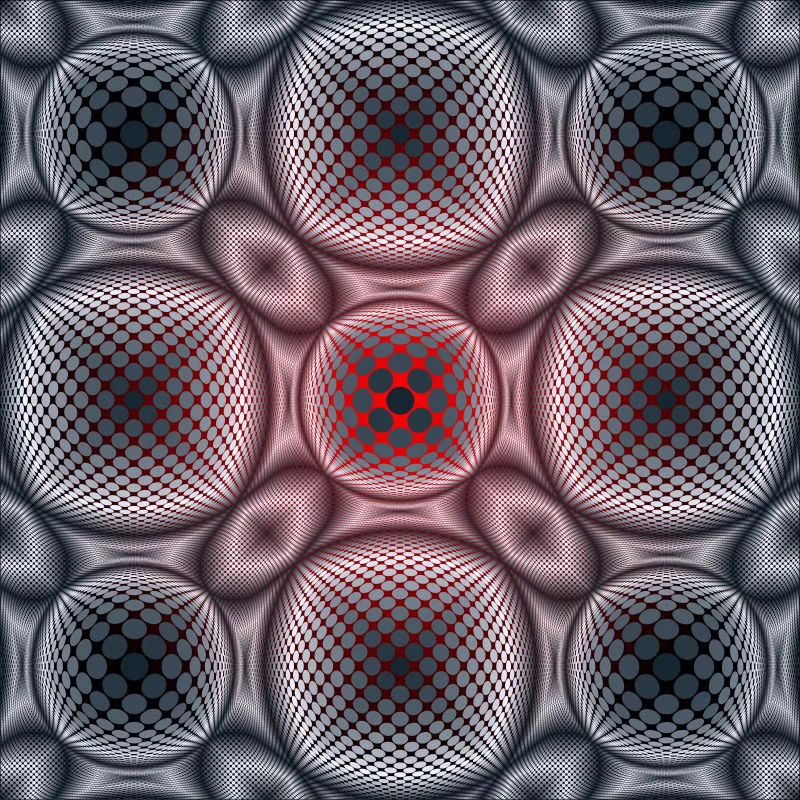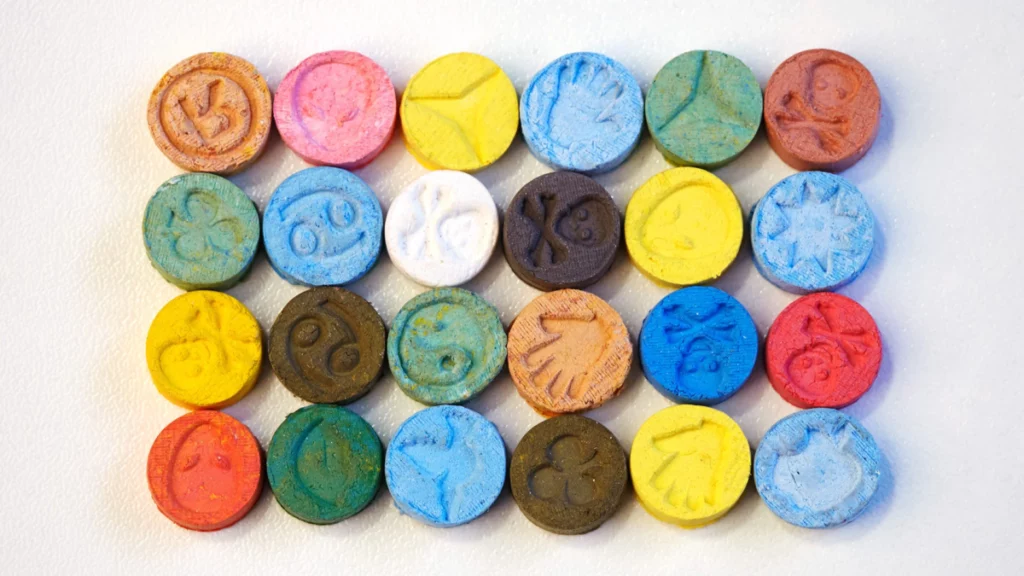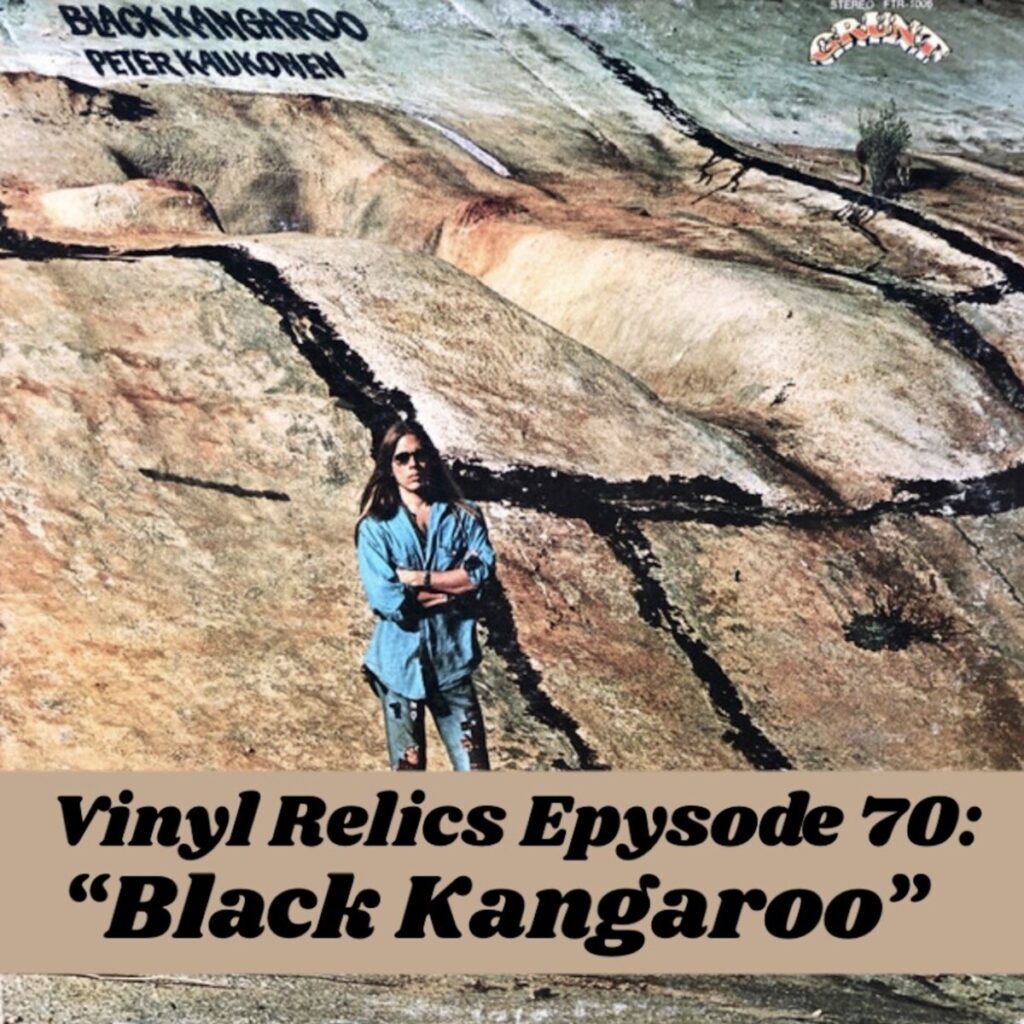Artist Spotlight: László Bagi Jr.
Artist Spotlight: László Bagi Jr.
In his childhood, László Bagi corresponded with the Hungarian-French Op Art progenitor Victor Vasarely, who started him on the path of becoming an Op Artist himself. His thinking and vision were influenced by Vasarely, and his profession as a cartographer helped his creative work. Even Vasarely knew that computer technology would eventually open up new horizons for op art, and the arts in general, and for his “colorful city” concept, but he felt that this would be left for the next generation. László Bagi Jr. is of that generation and strives to teach geometry in an experiential way and to spread geometric art.
ART
Bagi’s graphics elevate the platforms to three dimensions. Circles become spheres, squares and rectangles become cylinders, rectangles and cubes—represented in space. Their relations to each other—reflections and transparencies—are the main themes of his work. In his opinion, computer graphics renewed op-art and revolutionized visualization. The special color and light effects are also a great help in illustrating and teaching spatial perception.
László Bagi is a prolific, imaginative, and creative individual who draws his motifs from our environment: from nature, man-made objects and the world of modern technology. The tools he uses are pure geometry, color, light, and collage—all with the aid of computer technology.
He also presents his work on the internet and at exhibitions. One of the exhibitions was in Szentendre in July 2014, at the Szentendre Old Art Center, in the MANK Gallery.
In the field of applied arts, he deals with furniture design in a refined geometric and abstract style. For a while he even made furniture himself. The furniture he designed is ergonomical and suited for its function.
Bagi’s thoughts on art are based on Victor Vasarely’s idea written in 1963:
“From now on, we must interpret the work of art not as the only complex source of delight, which was created for a few priviliged people blessed with a rare receptivity, but as plastic impulses that can be constantly renewed and found everywhere, and are needed every day for people’s mental balance”.
László Bagi Jr.
László Bagi Jr.
László Bagi Jr.
Gallery
Recent Articles
Unicorn by Rio Kosta–Album Review
•
February 24, 2026
Vinyl Relics: Black Kangaroo by Peter Kaukonen
•
February 21, 2026

Loading...
